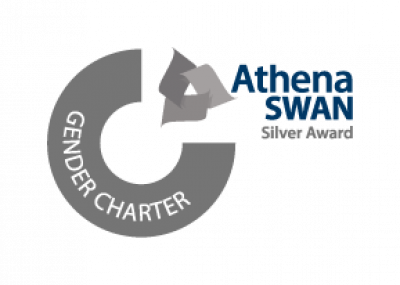Following the recent external arkisites' review, UCL Computer Science have drawn up an action plan
Staff Action Plan
The following recommendations relating to staff were identified by arkisites. The department have reviewed these recommendations and put forward proposed actions.
| Recommendation | Proposed Action |
|---|---|
Increase transparency of the promotion criteria for academic staff (what is required + how to put info together with examples of evidence). Set up a promotion and career path workshop to explain to staff potential opportunities and existing limitations that block promotion pathways. | Workshops planned annually and promotions information shared with all staff via email and more info available on SharePoint. First workshop successfully ran in July 2022. Further clarity to be added onto internal sites on promotions processes. |
Offer alternative career pathways (e.g., ownership of key projects, ability to explore projects that align with staff interests etc) for staff who are in roles that do not have promotion availability. | Offer professional services staff workshops and discuss pathways with staff during one to ones or appraisals. |
Bi-annual career discussions run by senior leadership within the department. | Encourage staff to complete appraisals annually using the new format to discuss career development and personal development plan. We aim to develop an automated process to remind staff to complete appraisals. |
Identify and give formal credit (e.g., publish to social media/LinkedIn) to the staff that have made extraordinary contributions to EDI. | The dept currently has EDI student awards initiative in place and will extend the scheme to include staff during the next academic year (2022-2023). |
Provide opportunities for members of staff to share best practices, skills and experiences during scheduled career discussions or departmental meetings as a spotlight. | Academic careers workshop led by Head of Dept introduced in July 2022, which will now be run annually. Team leaders will highlight training opportunities at team meetings and at other occasions. |
Provide formal and consistent EDI training to staff addressing conscious and unconscious bias in recruitment and hiring. The department should follow this up with a post-training evaluation process that seeks to measure accountability for changes in practice. Senior leaders should devise a strategy for ensuring that staff members receive the training. | Introduce recruitment refresher course annually and department level unconscious bias training delivered by external trainer. This course is mandatory for all staff and will be run twice a year. |
Seek to partner with underrepresented community groups to improve the pipeline for a more diverse staff body. Partnerships can be as low res as advertising opportunities in relevant community spaces to more grassroots attempts. | Community groups have been identified, and action will be taken to establish relationships with them in 2022-2023. |
Conduct a compensation study of staff within the department to address any concerns about inequitable pay. | Currently being reviewed by the dept’s Athena Swan lead. |
Ensure that the composition of staff involved in the recruiting process (hiring staff/managers, interviewers etc) is diverse by gender, race and age. | This process is currently being reviewed, where panel chairs will share information of panel members to ensure the panel is a diverse by gender, race and age. |
We recommend that the job description should become less cumbersome and communicate with the departments, faculty or institutions' commitment to EDI. Additionally, job descriptions should use neutral terminology that reflects the most recent research on gendered language. | The dept will work with central HR to action this. Template examples of job descriptions, person specifications and other resources are available on the UCL central SharePoint site, called “Fair and Inclusive Recruitment at UCL”. |
Recognise the value that professional service staff brings to the department, faculty and institution. | The dept has recently introduced a Staff awards scheme and new process to encourage compliments and thank you messages recognising the value professional services staff members. |
Evaluate the FTE of each employee within the department and hire where necessary to reduce the workload of staff. Make more hires with EDI being the focus of the role. | The dept will review roles and action would be dependent on available budgets. |
Launch a listening campaign targeted at professional services staff within the department. Listen to their grievances and co-create points of action that will result in professional service staff feeling like they are viewed and treated as equals to their academic colleagues. | This will be actioned during the new academic year using the new feedback process for improvements and comments. |
Student Action Plan
| Recommendation | Proposed Action |
|---|---|
Improve outreach: engage with community groups, social organisations and schools in the most diverse areas of London. | The A-Comps mentoring scheme is taking place in East and South London colleges. Schools outreach work will include the three boroughs mentioned in the report. The dept has identified an outreach lead and shared a list of diverse schools. |
Ensure that the topic of diversity is included and taught as a course to students. This can be done as an e-learning module before teaching starts or as a topic that is covered during the welcome week (orientation). | The dept tutor and Teaching and Learning Team are exploring opportunities to embed EDI learning in curriculum. |
Provide better support to Black students (create sense of belonging, improve relations with Black students, build a truly diverse organisation that is representative of the student body). To provide better support, the EDI team need to have a better understanding of the challenges that Black students face in the department and institution. | The dept's Race Equality working group will be launching drop-in student support sessions in October 2022 to engage with Black students, understand what support is required and signpost to appropriate services. |
Create a scholarship programme that targets black students. | The dept recently launched the Aspire Award offering 3 scholarships for Black students from September 2022. The scholarships cover the full tuition fees, an annual living allowance and a one-off payment for equipment. The dept are working with UCL teams to increase the number of scholarships annually from donations. |
Develop a mentorship scheme with schools in the most diverse areas of London (Southwark, Lambeth and Lewisham). Start with 6th form students and work your way down to earlier years. | The dept launched the A-Comps mentoring scheme in early 2022. The 18-month programme for London-based students is aimed at students that are interested in computer science, technology and engineering subjects and would like help on their journey into higher education. |
Empower staff within the department to share their ideas and show evidence that the ideas and thoughts of staff will be valued. Suggestion: Ideation workshop with concrete action items as outcomes. | See recommendation and action points 13 from the Staff action plan. |
Place information, policies and resources relating to EDI prominently on the departments' webpage. | This is mostly complete, and a new student SharePoint will be introduced in September 2022 with information on EDI for students. |
Revamp the admissions process for courses in the department. Explore ways to ensure that other complementary skills can be made visible in the admissions process (e.g., interviews or aptitude tests) | UCL currently has an Admissions Transformation Programme and the dept has shared feedback on current processes. Outside of this, the dept will ensure admissions processes are included in our outreach activities where application processes are explained and information on personal statements are shared for UG and PGT programmes. This process has been extended at open days. |
Improve current lines of communication between the central admissions teams and the department as it pertains to EDI | The dept has invited colleagues from the admissions team at Insight Sessions for the Aspire Award and A-Comps programme. We will look to extending this for the PGT programmes in 2022-2023. |
Record data (by ethnicity) of students that attend open days to inform open day marketing strategies for the department | The dept is currently looking into the data available and working with UCL central's comms team to explore options for capturing data. |
Co-create a mentorship programme and pastoral care with black students within the department, for black students within the department. Staff that participate in these programmes should be black (the department may look to faculty members for support due to a lack of black staff in the department). Students and staff can exchange experiences, lessons and strategies for academic success whilst navigating a predominately white department. | The CS Student Society ran a mentoring scheme during the last academic year, which will now be extended to the whole faculty with a focus on students from Black, Asian and minority ethnic backgrounds. Furthermore, the dept’s Race Equality working group will signpost students to the faculty’s mentoring scheme. |
Black students should be encouraged to use the current support structures surrounding mental health and reporting maltreatment by either other students or members of staff. The department should ensure that follow-up actions, investigations or escalations are carried out where necessary. Structures and processes should also be put in place for students that believe that their experiences and outcome was inadequate. | Members of the Race Equality working group, who will be supporting students are trained in “Mental Health First Aid training at UCL”. Current support structures are outlined in the student handbook, and more information will be available on the new student intranet. A “Report + Support” tool is available for students to use for all incidents. |
Integrate more professional development standards into courses in the department. This can be done by introducing more professional development type modules into CS-related courses. Alternatively, some modules can be restructured (teaching methods, learning objectives and assessment types) to have a bigger focus on the professional development of students and replicate some of the experiences that students will have in industry. | The dept runs an NXI scheme, where UG and MSc students can apply their skills and knowledge to real life problems. The Race Equality working group will look at working with external trainers to host workshops covering soft skills for students. |
Leverage current and build new connections with corporate and social mobility organisations to deliver career-specific workshops for black students that want to enter a career industry. Ensure to integrate content for both technical and non-technical roles. Similar workshops can also be built, adapted and run for students that are interested in a career in academia. | Students have had an opportunity to meet industry professionals from similar backgrounds at a speed networking event. Students gained insight into career pathways and engaged with industry professionals from EY, EDF, Sky, NTT Data, Clarksons Platou and UCL researchers. This event will be run annually by the dept’s Race Equality working group. |
 Close
Close




